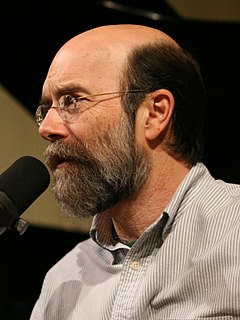A Quote by Thomas S. Monson
Our opportunities to give of ourselves are indeed limitless, but they are also perishable. There are hearts to gladden. There are kind words to say. There are gifts to be given. There are deeds to be done. There are souls to be saved.
Related Quotes
As we move toward the future, we must not neglect the lessons of the past. Our Heavenly Father gave His Son. The Son of God gave His life. We are asked by Them to give our lives, as it were, in Their divine service. Will you? Will I? Will we? There are lessons to be taught, there are kind deeds to be done, there are souls to be saved.
In the chapter on study we considered the importance of observing ourselves to see how often our speech is a frantic attempt to explain and justify our actions. Having seen this in ourselves, let's experiment with doing deeds without any words of explanation whatever. We note our sense of fear that people will misunderstand why we have done what we have done. We seek to allow God to be our justifier.
We can make ourselves say the kind things that rise in our hearts and tremble on our lips - do the gentle and helpful deeds which we long to do and shrink back from; and little by little, it will grow easier - the love spoken will bring back the answer of love - the kind deed will bring back a kind deed in return.
We have God's promise that what we give will be given back many times over, so let us go forth from here and rekindle the fire of our faith. Let our wisdom be vindicated by our deeds. We are told in II Timothy that when our work is done, we can say, ``We have fought the good fight. We have finished the race. We have kept the faith.'' This is an evidence of it.
Our words, like our deeds, should be filled with faith and hope and charity, the three great Christian imperatives so desperately needed in the world today. With such words, spoken under the influence of the Spirit, tears can be dried, hearts can be healed, lives can be elevated, hope can return, confidence can prevail. ... May we all rejoice in the thought that when we say edifying, encouraging things unto the least of these, our brethren and sisters and little ones, we say it unto God.
One of the most important lessons the Lord has taught me is that you are not your gift. That is, you are not defined by what you do or create. Jesus is a wonderful example of this. He would not allow the crowd to define Him by His considerable gifts, even though they tried to do so. Jesus always points away from Himself and His gifts and thereby wins praise for the Father. We are not our gifts. We are called to give more. Like Jesus, we are called to give ourselves. That is the real purpose behind our gifts; they are vehicles for giving the self.
The growth of all the plants of the garden from seeds and roots keep us mindful, in accordance with of the Parable of the Sower, of the need for our loving, mortified reception and cultivation in our hearts and souls of the seeds and roots of the supernatural gifts and virtues necessary for progress in the ascetical/mystical ascent of our souls toward union with God and with the divine will for Creation and Kingdom
If I was to ask you tonight if you were saved? Do you say 'Yes, I am saved'. When? 'Oh so and so preached, I got baptized and...' Are you saved? What are you saved from, hell? Are you saved from bitterness? Are you saved from lust? Are you saved from cheating? Are you saved from lying? Are you saved from bad manners? Are you saved from rebellion against your parents? Come on, what are you saved from?



































